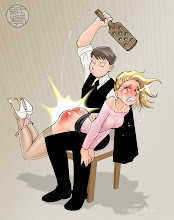Entry for September 07, 2008 Resources for school, really.
Sorry, just a boring post, no story or memory.
But with the start of the school year, thought I might share some things we've picked up over the years that others might find helpful as well. I'm not going to go into great detail here, if you want, you can always look up more yourself online.
First of all, for the grade school and middle school set, the Everything You Need to Know About collection. This is from the Scholastic Homework Reference Series, and I would recommend getting the whole set. They have separate books on American history, world history, science, math, geography and english. They are not overly dumbed down, and while yes, you can always look this stuff up on the net, the problem then is often trying to limit the search to what you really need, and these books do that.We picked up our set at Barnes and Noble, but I'm sure you can can find used copies on Amazon.com and other places.
Next, for middle schoolers and high school students, and well, even sharp grade schoolers, is the Vocabulary from Classical Roots. While many will use it simply as an Excellent vocabulary builder in preparation for those dreaded SAT and ACT exams, it will also serve well any student looking to go on into biological or science fields. Having a Good command of latin and greek suffixes and prefixes is a big help in learning and figuring out vocab at a later date. Again, as a suggestion, just buy the whole set of five. Oh, and as a further suggestion, don't write in them but do the exercises on separate paper, so future kids can also benefit.They are put out by Educators Publishing Service, 800-225-5750 or http://www.epsbooks.com/
Next. For grade school all the way up to high schoolers, a great little series for helping teach deductive thinking and reasoning skills is the award winning Mind Benders series.How to describe them...Well, here is what they have to say about themselves.A Mind Bender problem gives you two or more lists of things and asks you to match each item in one list with an item in the other list.Here is an actual early problem:Ed, Ida, Joanne, and Tony are two sets of twins. Tony is a month younger than Ed. Joanne is a month older than Ida. Which pair is the younger?Simple, right? and it is, and even younger kids get the hang of this fast, and the books offer Great suggestions as to how to set up tables and charts.
There are three sets of books, A, B, and C levels, with three to four books in each series (the above was from A1). Don't be fooled, they Rapidly get harder, at the end of the A series you are comparing 8 item tables. The C level ones can be Very tricky. I would suggest, even middle school and high school students, you get them all three levels. Yes, they will more than likely power through the early ones quickly, but that is a good thing, it builds confidence. It's amazing how little basic reasoning seems to be taught in schools today.Oh, and no need to worry about solving them yourself, each problem comes not only with the answer, but, a Complete explanation as to why it's correct. And there have been a couple I've had to look up and go, how the hell did they get that?This series is from the great Critical Thinking Company, http://www.criticalthinking.com/800-458-4849They have a Wide range of materials, as do most of the companies I'm mentioning. In their case, they also cover language arts, math, science and history, and a lot is also on software if you prefer.
Another of their series I would recommend is their Building Thinking Skills sets, and they have different levels by grades.
Now, the next picks will not be for everyone, as they are a Christian perspective company, offering resources for both homeschoolers as well as those who simply want a good rigorous book on certain subjects. You name it, they probably offer a course in it, from kindergarten level to 12th grade.Their math program, if you are homeschooling, is highly recommended.Even though we didn't home school, we ended up picking up a few of their texts from their history section, as home references. And liked them so much, ended up getting copies for the rest of my family as well.
I would suggest the 9th grade world geography, 10th grade world history, 11th grade US history, and the 12th grade American government texts. Don't be put off by the lower grades, the books are much more in depth than many modern 'lite' textbooks.
For those whose students are having trouble with reading, they have an excellent phonics program, as well.
They are A Beka books, and are at http://www.abeka.com/ or 1-877-223-5226
Two other history books I would suggest to have on hand for the home library as references are Paul Johnson's Modern Times, and his History of the American People. Very helpful for high school and college students.
And for those looking to take their ACT and/or SAT exams, we think that the best study guides out their are the ones by Princeton Review. Same for their AP test guides.
hmmm, what else...Oh! McGraw-Hill's Demystified series! You name it, especially if it's math or science related, and they probably have a book for it. Each book is a well laid out self teaching guide, a good way for those weak in math to bone up on their problem before actually taking the next higher level course. You can find a lot of their titles at Barnes and Noble, as well as at their site, http://www.books.mcgraw-hill.com/
best of luck,
Angie
Monday, June 15, 2009
Subscribe to:
Post Comments (Atom)

No comments:
Post a Comment